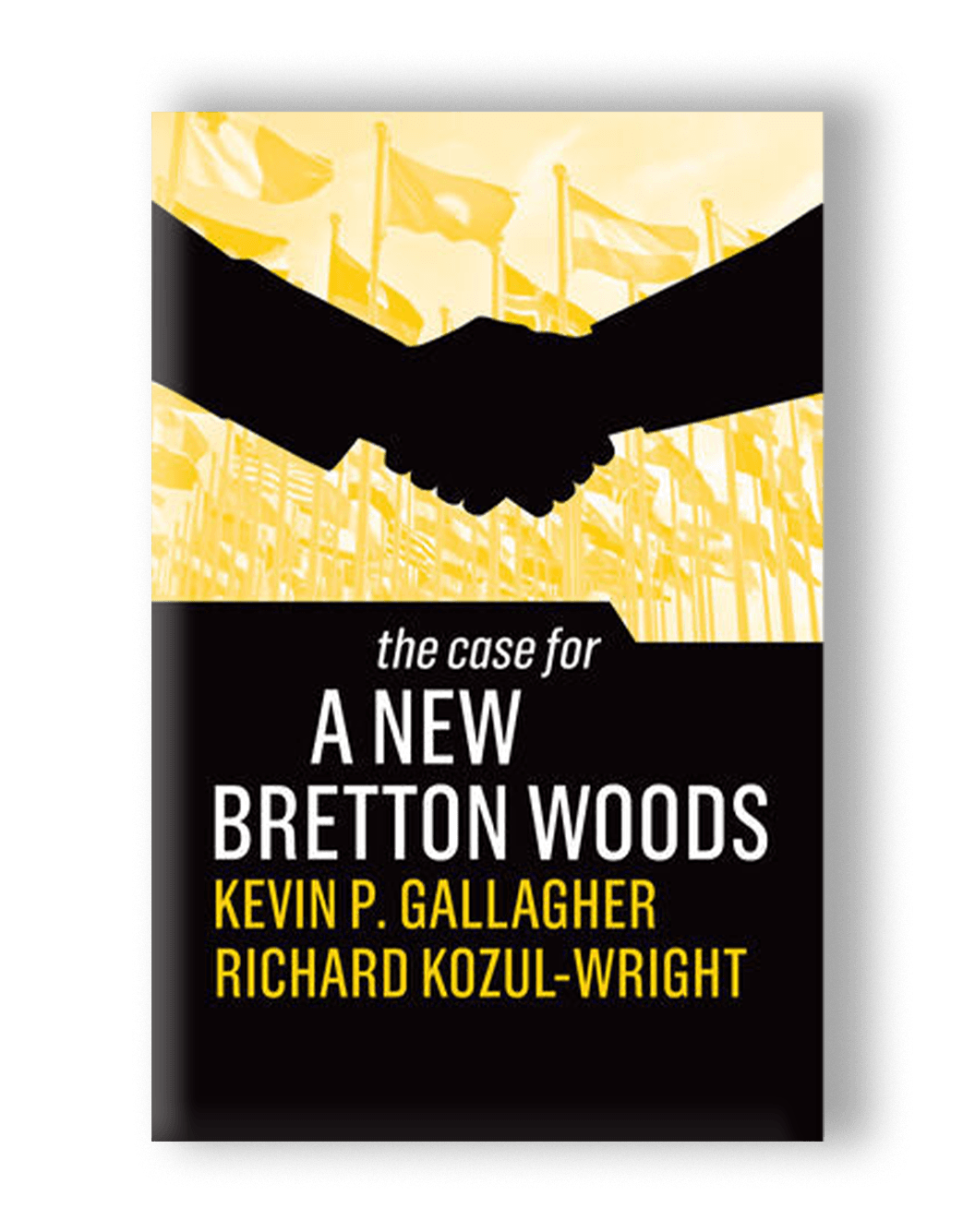"We are now faced with the fact that tomorrow is today. We are confronted with the fierce urgency of now. In this unfolding conundrum of life and history, there is such a thing as being too late." Those were the words of Martin Luther King, Jr. (GRS'55, Hon.'59) in 1967 as he called for an end to the Vietnam War, and for lasting global peace and justice. They're also the opening words of Kevin P. Gallagher's new book, The Case for a New Bretton Woods, in which he argues the need to overhaul antiquated global economic systems that he says are fueling poverty, inequality, and climate change.
"From a scientific perspective, there is the same fierce urgency in the way Dr. Martin Luther King talked about civil rights back then," says Gallagher, director of Boston University's Global Development Policy Center.

It's time, he says, for the world to come together to build new global economic rules, in the same way it did toward the end of World War II in Bretton Woods, N.H. In 1944, a group of more than 700 delegates from 44 countries congregated at Bretton Woods, a ski and recreation area in the White Mountain National Forest, to establish an international system of finance, trade, and development principles, and-they hoped-bring economic prosperity. They met for about three weeks, resulting in new trade rules and the establishment of global financial institutions, such as the World Bank and the International Monetary Fund.
"They created a whole international economic order that worked pretty well until the 1980s," Gallagher says. Now, the world is faced with challenges that did not exist in the 1940s, from climate change to global trade wars to a coronavirus pandemic, all occurring on a scale the Bretton Woods attendees couldn't have imagined. Gallagher and coauthor Richard Kozul-Wright, director of the Division on Globalization and Development Strategies at the United Nations, want a future that protects people from these threats.
"Inequality, instability, and climate crisis is a triple crisis that could lead to war or worse if we don't act now on these issues," says Gallagher. The book-clocking in at a manageable 142 pages, considering the vast changes it calls for-offers a number of key recommendations for sweeping reforms, including redirecting trade rules toward low-carbon investments, equitably supporting massive green industrialization, and promoting a more prosperous, sustainable world economy for the 21st century.
"We need another moment like Bretton Woods," says Gallagher, who's also a Frederick S. Pardee School of Global Studies professor of global development policy. "The 21st century needs a moment with that same spirit to reboot the architecture to be fit for the purpose of today."
The Brink spoke to Gallagher about his vision for a new Bretton Woods and why he thinks major reforms are necessary now more than ever.







